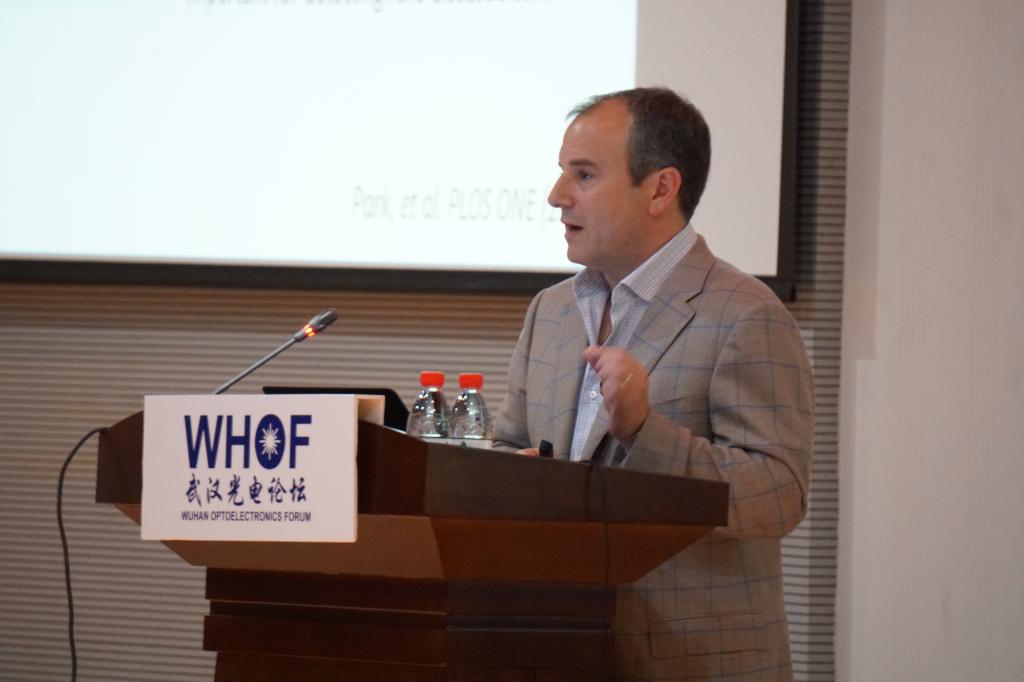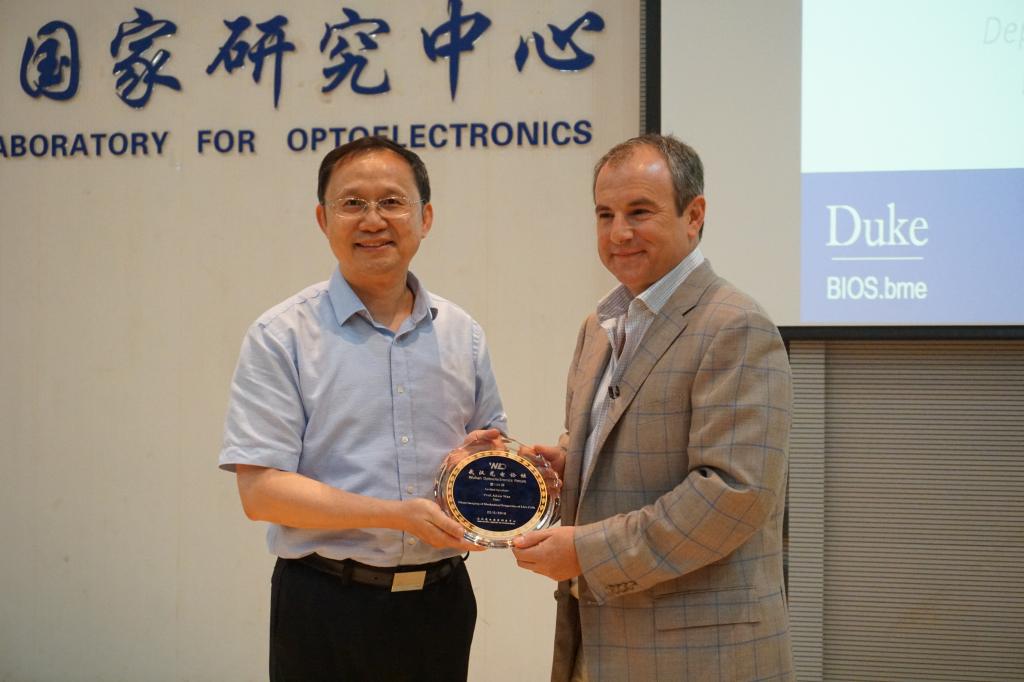WUHAN, China (May 22, 2018) - Wuhan Optoelectronics Forum No. 138 was successfully held in Auditorium A101 at Wuhan National Laboratory for Optoelectronics (WNLO) in the afternoon of May 22. Prof. Adam Wax from Duke University delivered an exciting talk entitled Phase Imaging of Mechanical Properties of Live Cells. Prof. QingMing Luo, vice-president of HUST, chaired the forum and awarded Prof. Adam Wax the forum medal.
The mechanisms by which cells respond to mechanical stimuli are essential for cell function yet not well understood. Many rheological tools have been developed to characterize cellular viscoelastic properties but these typically require direct mechanical contact, limiting their throughput. We have developed a new approach for characterizing the organization of subcellular structures using a label free, noncontact, single-shot phase imaging method that correlates to measured cellular mechanical stiffness. The new analysis approach measures refractive index variance and relates it to disorder strength. These measurements are compared to cellular stiffness, measured using the same imaging tool to visualize nanoscale responses to flow shear stimulus. The utility of the technique is shown by comparing shear stiffness and phase disorder strength across five cellular populations with varying mechanical properties. An inverse relationship between disorder strength and shear stiffness is shown, suggesting that cell mechanical properties can be assessed in a format amenable to high throughput studies using this novel, non-contact technique. Further studies will be presented which include examination of mechanical stiffness in early carcinogenic events and investigation of the role of specific cellular structural proteins in mechanotransduction.
Adam Wax received the B.S. degree in electrical engineering from Rensselaer Polytecnic Institute, Troy, NY, and the second B.S. degree in physics from the State University of New York at Albany, Albany, NY, in 1993, and the M.A. and Ph.D. degrees in physics from Duke University, Durham, NC, in 1996 and 1999, respectively.
He was a Postdoctoral Fellow at George R. Harrison Spectroscopy Laboratory, Massachusetts Institute of Technology, Cambridge. He is currently Professor of Biomedical Engineering and Director of Graduate Studies at Duke University. His research interests include optical spectroscopy for early cancer detection and novel microscopy and interferometry techniques. Dr. Wax is a fellow of the Optical Society of America, SPIE and AIMBE. He was named Outstanding Postdoc Mentor in 2012.

